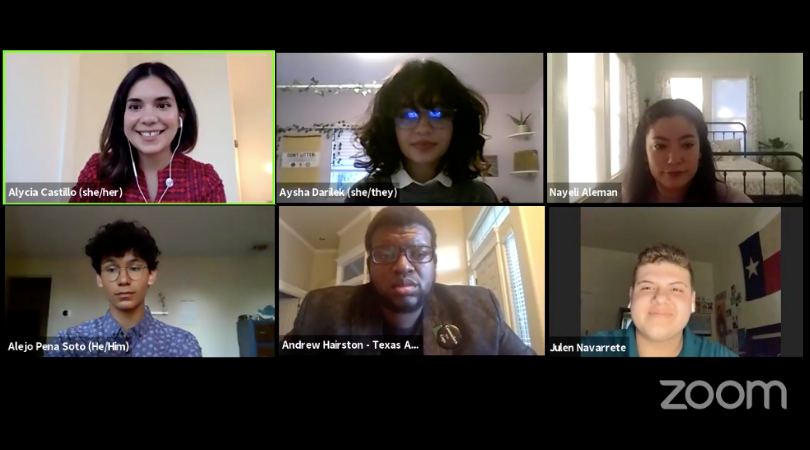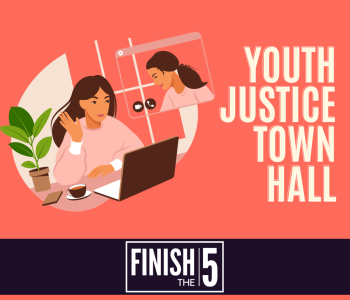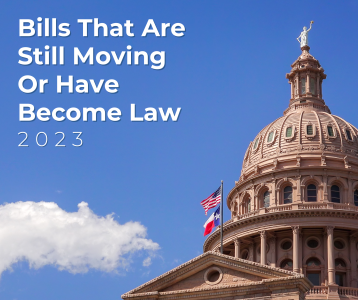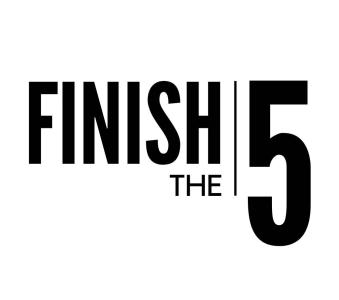Putting Youth Justice in Action for YJAM 2020

Since 2008, October has been dedicated to youth justice. Every year, advocates, family members, and system-impacted kids have come together with leadership from the Campaign for Youth Justice to mark Youth Justice Action Month (YJAM), formerly called Youth Justice Awareness Month.
In a typical year, YJAM is an opportunity for the youth justice community to highlight wins and needed reforms through rallies, events, and more. We get to meet face-to-face and share stories of resilience and redemption. This year, I’m proud to say that our community met the unprecedented challenge of the coronavirus pandemic by creating a virtual space that was just as meaningful.
Adding to countless online events in Texas and across the country, TCJC hosted five informative and intimate conversations on youth justice.
- The “New Normal” for Youth Justice: On October 1st, I sat down with Charles Rotramel and Erika Martinez of Houston reVision to talk about how Harris County was able to lower the number of kids in juvenile detention during the COVID-19 pandemic—and how to replicate that result across Texas. We also began this event with some general information on youth justice, so it’s a great place to start if you’re looking for definitions or background! Watch our full conversation here.
- Second Look for Youth Serving Extreme Sentences: On October 8th, we dedicated our conversation to Second Look; we continue to fight for this legislation, which would give an earlier opportunity for parole to rehabilitated people sentenced to extreme prison terms as youth. I was joined by Marc Levin of the Texas Public Policy Foundation, Preston Shipp of the Campaign for Fair Sentencing of Youth, and Edwin Debrow of the (newly renamed!) Epicenter Initiative. Watch the video here.
- Policy for Youth Decarceration (Part 1): On October 15th, I was joined by Michele Deitch of the LBJ School of Public Affairs at the University of Texas at Austin. Our two other guests were both directly impacted by youth justice in Texas; one talked about his experience entering the adult justice system as a 17-year-old, while another discussed what it was like when an 11-year-old in her family became entangled in the juvenile justice system. Although we are not sharing a recording of this event to protect the privacy of our participants, I invite you to read TCJC’s most recent report on the need for Texas to “Raise the Age” of criminal responsibility here.
- Policy for Youth Decarceration (Part 2): On October 22nd, our guests and I discussed dual-status youth (who are involved in both the child welfare and juvenile justice systems), as well as juvenile probation reform. I was joined by Emily Mooney of R Street Institute, Katya Dow of the Juvenile and Children’s Advocacy Project of Texas, and Dieter Cantu of Harris County Youth Collective. You can watch our conversation here.
- Education Justice: We held our final YJAM event on October 29th, where we focused on education justice, which focuses on restorative justice and mental health supports for students, versus investments in school police. I was joined by Andrew Hairston of Texas Appleseed, State Representative and former public school teacher James Talarico, and four high school students from SAISD Student Coalition in San Antonio. Over the last year, these students and their peers have shared a valuable lesson with me: the idea of “nothing about us without us.” I’m grateful that they participated in this conversation, and proud to have shared our platform with them. Watch the discussion here!
Thank you to everyone who joined us for Youth Justice Action Month! A special thank you to the following organizations and advocates who made this virtual event series possible: Campaign for Youth Justice, Marc Levin (Texas Public Policy Foundation), Andrew Hairston (Texas Appleseed), SAISD Student Coalition, Preston Shipp (Campaign for Fair Sentencing of Youth), Edwin Debrow (The Epicenter Initiative), Charles Rotramel and Erika Martinez (reVision Houston), Amy McGee and Nicky Ishaak, Dieter Cantu (Harris County Youth Collective), Katya Dow (Juvenile and Children's Advocacy Project of Texas), Emily Mooney (R Street Institute), and Michele Deitch (LBJ School of Public Affairs at the University of Texas at Austin).
Although October is over, this urgent youth justice work will continue into Texas’ 2021 legislative session and beyond. With you by our side, we will maintain our fight for system-impacted youth, helping to put them on a safe, stable, and productive path forward.



